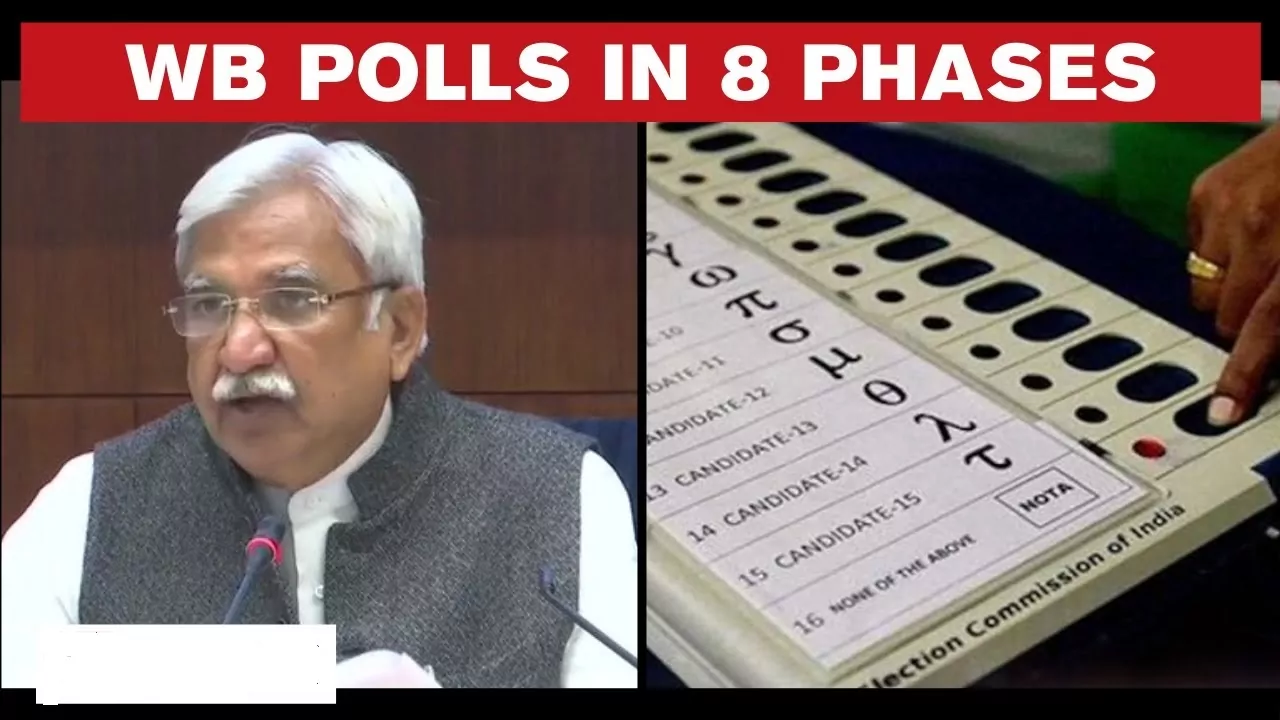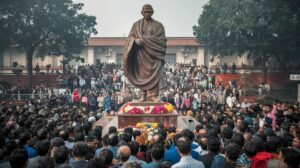The Election Commission of India (ECI) has announced the schedule for the assembly elections in West Bengal, as well as three other states and a Union territory, and said voting will start from March 27. The 294 assembly seats in West Bengal, where the ruling Trinamool Congress is looking to retain power amid a strong challenge from the Bharatiya Janata Party (BJP), will go to the polls in eight phases and the votes will be counted on May 2 along with the others, chief election commissioner (CEC) Sunil Arora said.
According to news agency PTI, the election body’s officials said the polling had to be spread out due to festivals, the movement of security forces and an increased number of polling stations keeping in mind the Covid-19 related protocols. CEC Arora said the commission assesses the law-and-order situation and it is based on several factors. “After all, the elections to West Bengal in 2016 were in seven phases. The Lok Sabha was in seven phases. So, seven to eight (phases) is not such a big deal because we also have to see the movement of forces, the current charges and counter-charges (by political parties). “We have to kind of find a way out. That is why we are sending two expenditure observers to Tamil Nadu and two police observers to West Bengal,” he explained.

Soon after the poll body announced the dates for the assembly polls, chief minister Mamata Banerjee alleged that the schedule was suited to the BJP. “With all due respect to the Election Commission, I want to say questions are being raised on why elections will be held in so many phases in Bengal while other states will be voting in one phase,” she said.
The BJP’s former national secretary Rahul Sinha reacted to Banerjee’s statement. “She is agitated because eight-phase polling will ensure peaceful polling, not the bloodbath we always witness. If she is so confident about having mass support it should not make any difference is polls are held in 28 phases,” Sinha said.
Several Left parties also alleged that the commission had failed to provide credible justification for conducting an eight-phase election in West Bengal and questioned the motive behind it.
The entire electoral process in the 2016 West Bengal assembly polls—from the date of announcement till the date of counting—was completed in 77 days and this time, the period has been compressed to 66 days. There were 77,000 polling stations with 11,000 going to polls per phase in the 2016 polls. The number of polling stations this time has gone up to 110,000 due to social distancing norms. More than 12,000 polling stations, on average, would go to polls in each of the eight phases. The number of polling stations in West Bengal is 101,916 compared to 77,413 in 2016—an increase of 31.65 per cent.
The number of voters in each polling station has also been restricted to 1,000 from 1,500, resulting in an increase in the number of polling stations.
Polling in West Bengal will be held on March 27, April 1, April 6, April 10, April 17, April 22, April 26 and April 29. Assam will have three-phase polls on March 27, April 1 and April 6. In Kerala, Tamil Nadu and Puducherry assembly elections will take place in a single phase on April 6.










